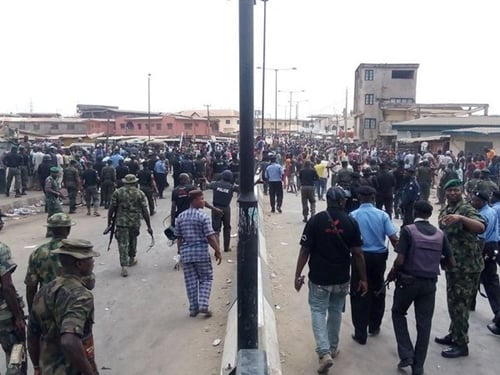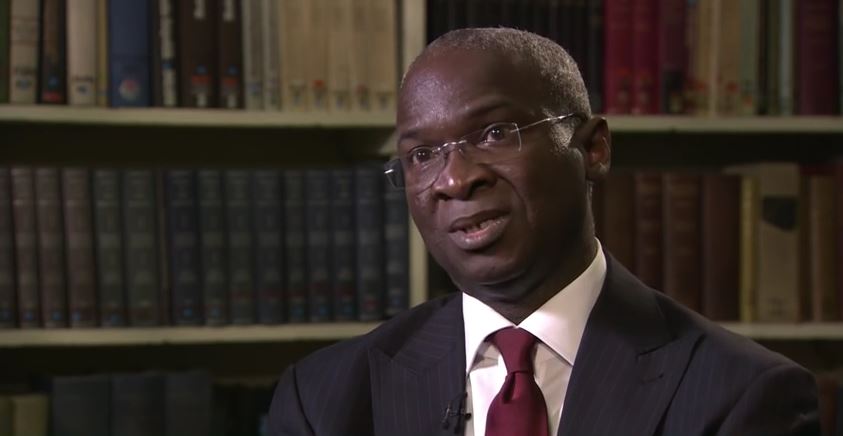BY JUMOKE ODUWOLE
The news is out that in the Doing Business 2018 Report, the World Bank Group’s flagship publication launched on October 31, 2017, Nigeria shocked the world by improving an unprecedented 24 ranks in the global ease of doing business index and entered the global elite group of the top ten reforming countries in the world this year. Those are two firsts for our country, and may have come as a surprise to many Nigerians as well, but there is enough reason to celebrate the results, and this progress is an early sign of more and better to come.
Nigeria’s private sector is known across the world for being dynamic and innovative. Yet, our courageous entrepreneurs face cumbersome, often opaque regulations, and bear heavy costs that expose them to rent seeking behaviour while trying to access basic services needed for any micro, small or medium enterprise (MSME) to function and to thrive. The Buhari administration is determined to fix precisely that. If Nigeria is to become an internationally competitive investment destination, it has to be first be an easier place to do business for its domestic enterprises. This is our agenda – we want to make business work in Nigeria!
The presidential enabling business environment council (PEBEC) was established by His Excellency, the President in July 2016, with a mandate to sustainably and progressively make Nigeria an easier place to do business. The PEBEC, is chaired by His Excellency, the Vice President, with the Hon minister of industry, trade & investment as vice chair. Its other members include ten ministers, the head of the civil service of the federation, governor of the Central Bank, as well as representatives of the national assembly, Lagos and Kano states and the private sector. The enabling business environment secretariat (EBES) supports the PEBEC in implementing its reform mandate.
Advertisement
On February 21, 2016, PEBEC approved a 60-day national action plan on the Ease of Doing Business with clear deliverables and timelines for the ministries, departments and agencies (MDAs) responsible for implementing each line item in the plan. The goal of the NAP 60 was to make it easier for MSMEs to do business in Nigeria. For us, developing a national plan along the lines of 7 out of the 10 indicators measured by Doing Business in addition to 1 home-grown one was a good starting point on our journey to make Nigeria’s environment more transparent, faster, more affordable and convenient. In fewer words – more competitive.
Surely enough, we started seeing results of our work and we were proud to note the following achievements:
– Business registration can now be done online, and completed within 24 hours;
– Time to obtain a construction permit has been halved from 42 to 20 days;
– Fewer days – 44 instead of 145 – are now required for a new electricity connection;
– Property transfer is now twice as fast as it used to be – 30 days instead of 77;
– MSMEs have better access to credit, thanks to the collateral registry and stronger credit reports;
– E-filing and e-payment are broadening the tax base;
– Export/import procedures are now taking 50% less time than before; and
– Visa-on-arrival can now be processed within 48 hours.
Advertisement
The encouraging results in the latest edition of the Doing Business Report, which are based on the testimonies of the private sector operating in Lagos and Kano, reflect all this hard work. Yet, a lot still remains to be done to bring our business environment at par with global best practice, and this continues in our ongoing second 60-day national action plan (NAP 2.0) which commenced on October 3 and ends on December 1, 2017. Building on the positive news, we are doubling our efforts to keep our reform momentum high and improve indicator by indicator, year after year.
This is a herculean task, but it is not an insurmountable one. Several countries in sub-Saharan Africa are succeeding in reforming to make their business environments more attractive. Mauritius is 25th globally in the ease of doing business measurement, better than France, Japan, Italy or Belgium. Rwanda is 41st on this index, while Kenya is 80th, Botswana 81st, South Africa 82nd and Zambia 85th. If these countries can do it, Nigeria can surely do much more!
There is no magic formula to successfully reform any economy. Strong reforming countries display recurring traits. There is leadership and championing of reforms from the highest levels of government. There is also constant dialogue with private sector – the beneficiary of reforms – to ensure reforms carried out are actually implemented on the ground. Then reform communication and outreach are key to ensure private sector knows about the reforms carried out, understands how they can benefit from them and actually supports the implementation, not undermine the reforms.
This is best practice anywhere, and is what produced the results we received last week as we applied it in our Nigerian context. Importantly, for the first time, coordinated efforts are underway to make it easier to do business in Nigeria. Through systemic changes, we are repositioning regulators as facilitators of business, and are steadily improving transparency and efficiency of service delivery by the public sector. The PEBEC gives strong political leadership to a highly collaborative reform exercise cutting across different levels of government.
Advertisement
Within the federal government over 40 MDAs worked together to deliver this quantum leap, not to mention our highly successful partnership with the national assembly, and with Lagos and Kano state governments. Furthermore, the supportive role played by the private sector and other stakeholders cannot be quantified. This experiment has definitely taught us that everyone pulling in the same direction to make business work in Nigeria clearly pays off!
In spite of the economic headwinds that we are now emerging from, Nigeria’s story still remains a remarkable one. Inflows from all the investment types grew in the second quarter of 2017, with the biggest growth from portfolio investors. Second quarter inflows of $1.8bn almost double $908m imported in the first quarter.
Investor interest remains strong, with announced investments of $22.42bn from January to August 2017, in 41 projects across 22 states. As noted in the economic recovery and growth plan (ERGP), sustainably reforming our business environment to make it more conducive is a safe building block to enable competitiveness and to reinforce Nigeria’s status as a preferred investment destination.
We’re not there yet. It’s a marathon and not a sprint, but we are clearly moving in the right direction of making Nigeria a progressively easier place in which to do business. I am confident that the best is certainly yet to come, but even as we journey together, please allow me pause to say – Congratulations Nigeria!
Advertisement
Jumoke Oduwole is senior special assistant to the president on industry, trade, and investment in the office of the vice president and secretary to the presidential enabling business environment council (PEBEC). She writes from Abuja, Nigeria.
Advertisement






